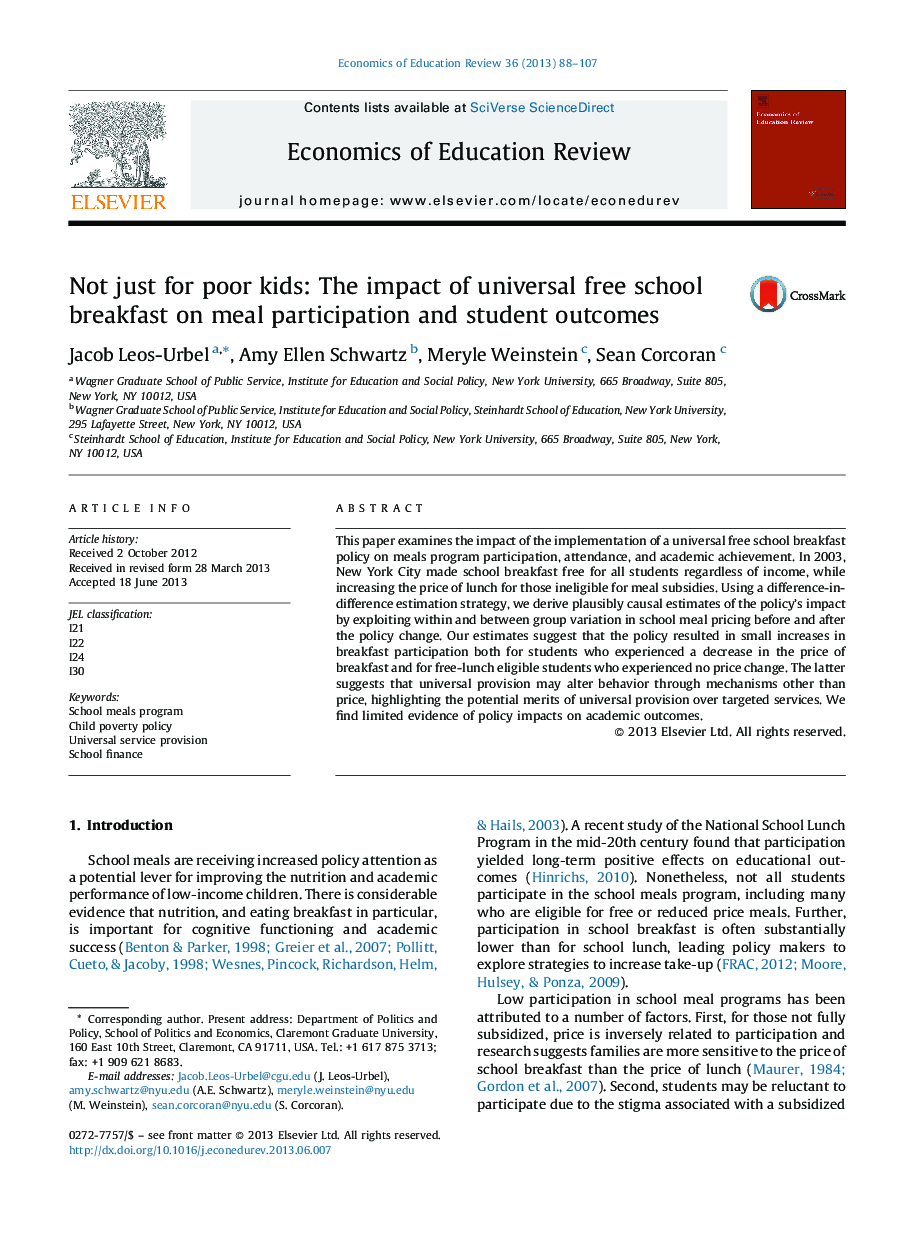| Article ID | Journal | Published Year | Pages | File Type |
|---|---|---|---|---|
| 6840922 | Economics of Education Review | 2013 | 20 Pages |
Abstract
This paper examines the impact of the implementation of a universal free school breakfast policy on meals program participation, attendance, and academic achievement. In 2003, New York City made school breakfast free for all students regardless of income, while increasing the price of lunch for those ineligible for meal subsidies. Using a difference-in-difference estimation strategy, we derive plausibly causal estimates of the policy's impact by exploiting within and between group variation in school meal pricing before and after the policy change. Our estimates suggest that the policy resulted in small increases in breakfast participation both for students who experienced a decrease in the price of breakfast and for free-lunch eligible students who experienced no price change. The latter suggests that universal provision may alter behavior through mechanisms other than price, highlighting the potential merits of universal provision over targeted services. We find limited evidence of policy impacts on academic outcomes.
Keywords
Related Topics
Social Sciences and Humanities
Economics, Econometrics and Finance
Economics and Econometrics
Authors
Jacob Leos-Urbel, Amy Ellen Schwartz, Meryle Weinstein, Sean Corcoran,
